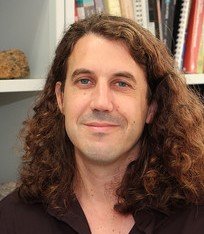UNIVERSITY AWARD
Research Output Prize 2018
"Ancient hydrothermal seafloor deposits in Eridania basin on Mars", Nature Communication, 8, 2017, Article number: 15978 .
Joseph R. Michalski*, Eldar Z. Noe Dobrea, Paul B. Niles & Javier Cuadrosn
Dr Michalski is a geologist and planetary scientist in the Department of Earth Sciences and the Deputy Director of the Laboratory for Space Research at HKU. In this 2017 research paper published in Nature Communications, Dr Michalski and co-authors describe the discovery of ancient hydrothermal deposits on Mars that could hold critical clues to the origin of life. While the traces of abiogenesis on Earth have largely been lost to plate tectonic process and eons of erosion, it is thought by many scientists that life on Earth began in hydrothermal environments ~4 billion years ago – perhaps in the ancient seafloor. This paper reports the discovery of hydrothermal seafloor deposits on Mars of similar age that are much better preserved than those on Earth. Such well preserved, ancient rocks on Mars could provide an invaluable window into similar conditions and environments where abiogenesis occurred on Earth.
Dr Michalski and his research team study the geology, mineralogy and geochemistry of Mars using infrared remote sensing. Infrared light reflected or emitted from the surface of Mars contains chemical “fingerprints” of the rocks and minerals present there. In order to interpret those data, Dr Michalski and his team use infrared laboratory instruments to study minerals here on Earth, revealing critical links between remote sensing and geologic samples.
To know more about Dr Michalski's research, please click here.

Dr Joseph Michalski
Department of Earth Sciences

